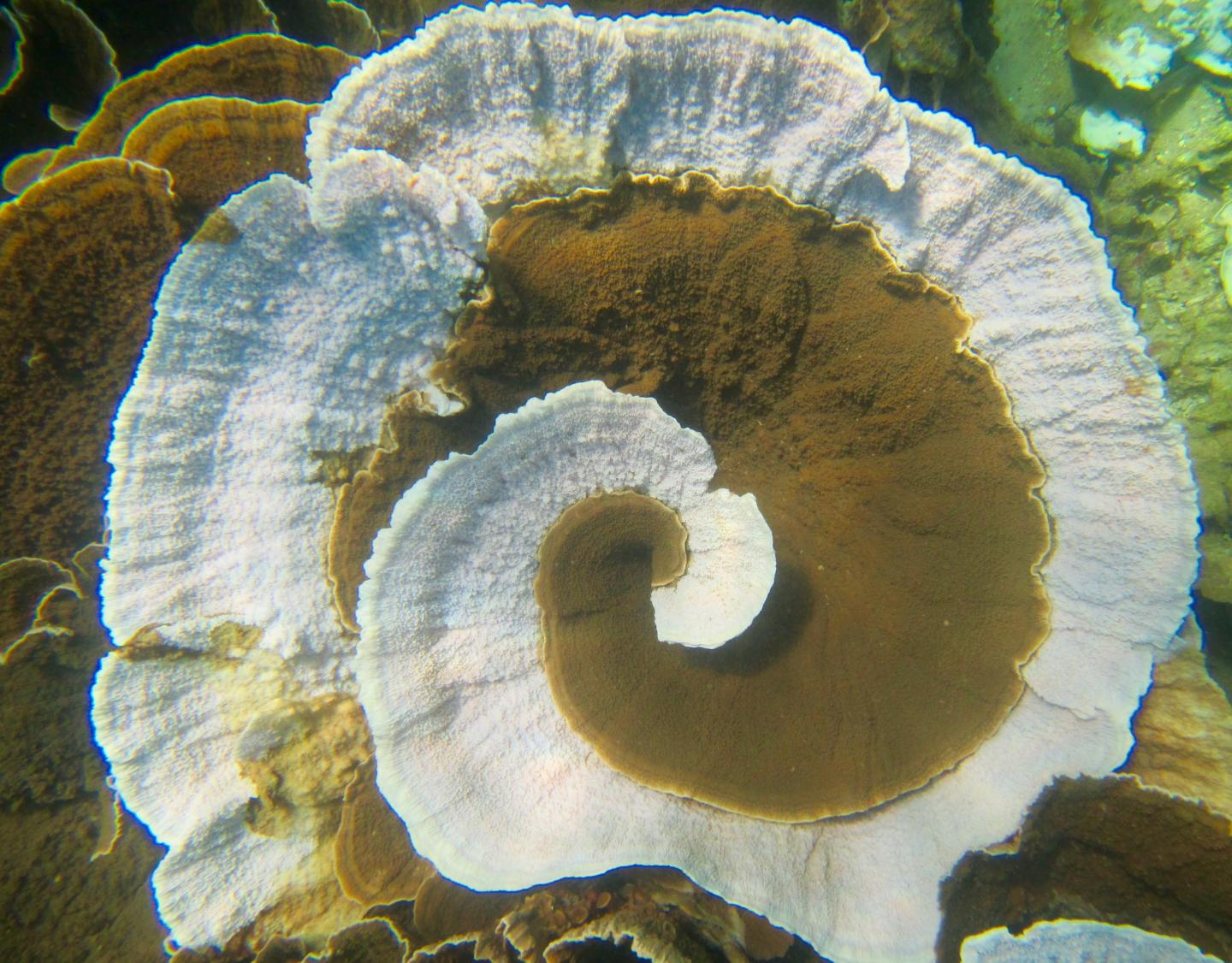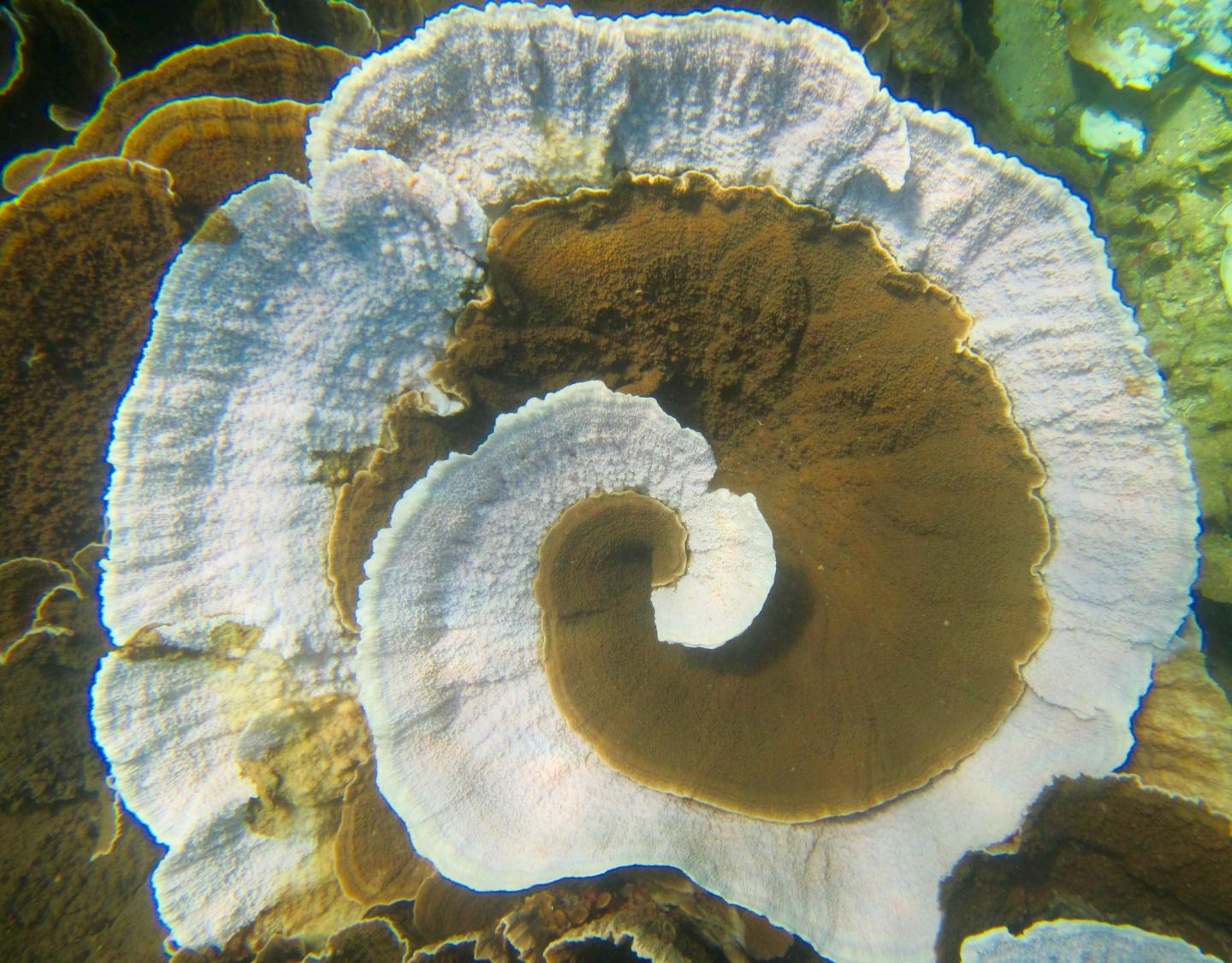
Credit: CREDIT: Tim McClanahan/WCS
NEW YORK (May 2, 2017) – A new WCS study reveals evidence that some corals are adapting to warming ocean waters – potentially good news in the face of recent reports of global coral die offs due to extreme warm temperatures in 2016. The study appears in the latest issue of Marine Ecology Progress Series.
The study looked at responses to extreme temperature exposures in the same reefs over time, and found less coral bleaching in 11 of the 21 coral species studied. WCS Senior Conservation Zoologist Tim McClanahan, who has been studying coral responses to climate change since the extreme temperatures of the1998 El Nino, authored the study.
The study took place in two marine national parks of Kenya. Looking at two similarly severe warming events in 1998 and 2016, McClanahan found that the number of pale and bleached coral colonies declined from 73 to 27 percent, and 96 to 60 percent in the two parks with different background temperatures. Most of this change was due to about half of the most common species that did not bleach strongly in 2016. One rare species was, however, more sensitive than in 1998.
Bleaching takes place when stressed corals discharge beneficial algae that supply energy to corals causing them to turn pale or white and often starve. Worldwide, an estimated 60 percent of corals and 90 percent of coral species experienced bleaching due to unusually warm ocean water in 2016.
McClanahan says: "This was a rare chance to study bleaching responses during two separate times with very similar conditions. Adaptation is evident for some of the more important reef building corals but, sadly, many species are not adapting, so this is a good news-bad news story."
But McClanahan warns: "Evidence for adaptation in the past is not evidence for adaptation in the future. Nevertheless, I suspect this adaptation to hot water started before my 1998 work and could have begun during the 1983 and 1988 El Niños, when coral bleaching was first observed in the region."
Said Tim McClanahan: "Despite the many caveats and interpretation of these results, this study provides one of the first response-rate estimates for many common corals at the population level. It therefore provides a basis for future studies and improving model predictions and the types of evaluations needed to address the future health of coral reefs."
Global awareness continues to grow about the immediate threats facing coral reef ecosystems, and a global commitment to address those threats. In February, at the Economist World Ocean Summit in Bali, Indonesia, the '50 Reefs' initiative was launched by the Global Change Institute of the University of Queensland and the Ocean Agency. The initiative brings together leading ocean, climate and marine scientists to develop a list of the 50 most critical coral reefs to protect, while leading conservation practitioners are working together to establish the best practices to protect these reefs.
###
This work was supported by the John D. and Catherine T. MacArthur Foundation, The Tiffany & Co. Foundation, the Pew Fellows Program in Marine Conservation at The Pew Charitable Trusts, and Ecosystem Services Poverty Alleviation (ESPA) program of the Department for International Development (DFID), The Economic and Social Research Council (ESRC) and the Natural Environment Research Council (NERC) Grant NE-K010484-1. Kenya Wildlife Services and Kenya's Office of Science and Technology provided logistic support and permission to undertake research.
WCS (Wildlife Conservation Society)
MISSION: WCS saves wildlife and wild places worldwide through science, conservation action, education, and inspiring people to value nature. To achieve our mission, WCS, based at the Bronx Zoo, harnesses the power of its Global Conservation Program in nearly 60 nations and in all the world's oceans and its five wildlife parks in New York City, visited by 4 million people annually. WCS combines its expertise in the field, zoos, and aquarium to achieve its conservation mission. Visit: newsroom.wcs.org Follow: @WCSNewsroom. For more information: 347-840-1242.
The John D. and Catherine T. MacArthur Foundation supports creative people, effective institutions, and influential networks building a more just, verdant, and peaceful world. MacArthur is placing a few big bets that truly significant progress is possible on some of the world's most pressing social challenges, including over-incarceration, global climate change, nuclear risk, and significantly increasing capital for the social sector. In addition to the MacArthur Fellows Program, the Foundation continues its historic commitments to the role of journalism in a responsible and responsive democracy; the strength and vitality of our headquarters city, Chicago; and generating new knowledge about critical issues.
Media Contact
Stephen Sautner
[email protected]
718-220-3682
@TheWCS
http://www.wcs.org
############
Story Source: Materials provided by Scienmag





